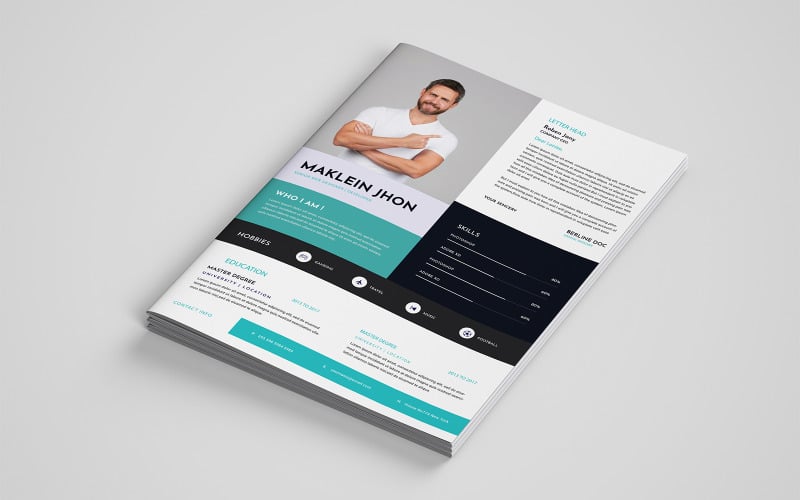In today’s hyper-competitive job market, submitting a strong CV isn’t enough. You need a strategically crafted document that highlights not only your technical competencies but also your interpersonal strengths. The perfect CV is more than just a career timeline—it’s a narrative that showcases both your professional expertise and your personal traits, striking the right balance to make you irresistible to hiring managers.
If you’ve ever wondered how to structure your resume to make it more impactful, the answer lies in mastering this mix of skills. Let’s explore how blending your personal and professional strengths can significantly increase your chances of landing interviews.
Why Both Skill Types Matter
When hiring managers scan CVs, they’re not only looking for technical capability. They’re also looking for the kind of person who can contribute to their team and company culture. This means:
- Professional Skills demonstrate your ability to do the job (e.g., project management, programming, financial analysis).
- Personal Skills reveal how you work with others and handle real-world challenges (e.g., communication, leadership, adaptability).
The combination offers a full view of your potential.
Learn more about how to differentiate between the two by checking out this personal skills guide.
What Are Personal Traits?
Personal traits are innate or developed qualities that influence how you interact, collaborate, and manage stress or conflict. Employers seek these characteristics because they point to long-term success, especially in dynamic or team-based environments.
Common personal traits valued by employers:
- Emotional intelligence
- Empathy
- Creativity
- Initiative
- Work ethic
These are often observed during interviews or inferred from how you present yourself in writing. A CV that clearly communicates these traits through phrasing, examples, or even layout choices can set you apart.
Professional Expertise: The Backbone of Your CV
This is where most people feel confident: listing qualifications, certifications, hard skills, and job duties. But even this section can benefit from nuance.
Rather than listing your past job titles and responsibilities, focus on outcomes and achievements. Quantify your results:
- “Reduced onboarding time by 30% through redesigning training process”
- “Led a team of 5 to deliver a £500K project under budget and ahead of schedule”
This reflects not just competence, but ownership, leadership, and problem-solving—blending the hard with the soft.
How to Seamlessly Blend Both in Your CV
- Craft a Balanced Summary Your opening profile should immediately reflect a mix of personal and professional strengths. For example:
“Detail-oriented digital marketer with 5+ years of experience managing cross-functional teams and driving ROI-positive campaigns. Known for strong collaboration, creativity, and results-driven strategy.”
- Use Skill-Based Subsections Include a section that lists key skills under Personal Skills and Professional Skills. It adds clarity and shows intentionality in how you present yourself.
- Tell Micro-Stories in Bullet Points In your work experience section, write bullets that combine the two. Example:
- “Collaborated with diverse teams to resolve customer complaints, improving satisfaction scores by 18%.”
- “Demonstrated initiative by automating reporting processes, saving 10+ hours per month.”
These lines show both results and the interpersonal skills used to achieve them.
- Include a Core Competency Section Place it near the top and break it into categories:
- Technical Skills: CRM Software, SQL, Google Analytics
- Soft Skills: Negotiation, Time Management, Adaptability
Common Mistakes to Avoid
- Overemphasizing One Side: A CV that lists only technical skills can feel robotic; one that leans too much into soft skills may lack credibility.
- Vague Language: Avoid buzzwords without evidence. Instead of “team player,” describe how you helped a team succeed.
- Generic Templates: Customise your CV format to better showcase your dual strengths. Creative layouts aren’t just for designers.
Industry Examples of Skill Mixing
- Finance: Combine analytical skills (e.g., forecasting, risk assessment) with attention to detail and ethical decision-making.
- Tech: Pair coding skills with collaboration, agility in learning, and customer focus.
- Healthcare: Blend medical expertise with empathy, communication, and crisis management.
- Marketing: Match strategic planning with emotional intelligence and storytelling ability.
Bonus: Align Your CV with Entrepreneurial Mindset
Even if you’re not starting a business, showcasing traits that signal entrepreneurial thinking can position you as a proactive, resourceful candidate. Traits like risk-taking, self-discipline, and goal orientation are appealing to many employers.
If you’re thinking beyond the 9-to-5, check out this list of personal skills and qualities valuable for starting your own business.
Final Thoughts
Your CV is your personal pitch. It should reflect who you are and what you bring to the table in both expertise and personality. Mastering the mix of personal traits and professional strengths will make your CV more than just a document—it will become a compelling story that earns interviews.
So, revisit your current CV. Are you only telling half the story? It might be time to rewrite it with both sides of you in mind.


